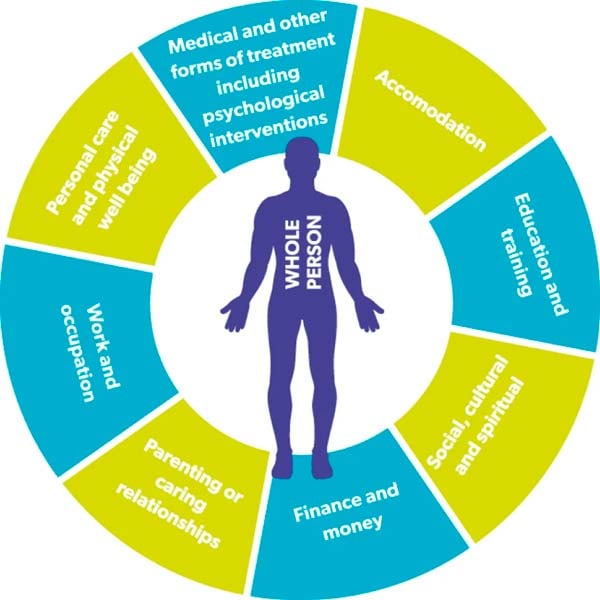Share this
Subscribe by email
by Core Solutions on January 8, 2020

As the behavioral health and human services industry has continued to trend toward focusing on people they serve as whole people rather than on their specific health conditions, entirely new sets of challenges have arisen in support of this model. In the delivery of "whole-person care" (WPC), providers take a broader look at a person's health issues, including their mental, emotional and physical health. Read on to learn how the trend toward WPH provides comprehensive care more efficiently.
|
Value-based care Most people know what they need to do to be healthy, but failure to do these things can lead to poor health. Behavioral health conditions may explain why they aren't eating healthy, exercising and practicing healthy habits. For example, overeating to deal with depression or abusing drugs and alcohol to cope with depression and anxiety can ultimately cause health problems. But when the medical professional treats the whole person, not only are the physical symptoms investigated, but the anxiety and depression are also explored and treated. How to treat the whole person Without whole-person care, treatment becomes fragmented. Treatment should be targeted, but it should also address a client's issues comprehensively. Whole-person care means focusing on the following:
How to use data and EHRs to provide whole-person care
If you would like to learn more about how Core's Cx360 platform allows behavioral healthcare organizations to gather, analyze and share client data across one enterprise platform, request a demo of Cx360 today. |